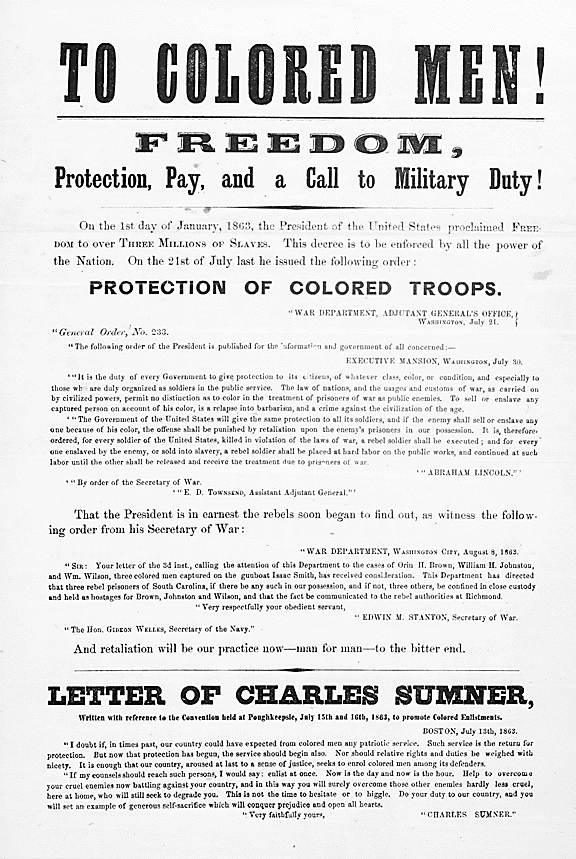Boston [BCF]
February 24,1863My dear Charley,
I thought I would write to you again this morning to tell you what Lowell says of the battle of Antietam. Hooker’s & Mansfield’s attack on the right was intended only for a feint—and Burnside’s was to have been the true attack — which would have cut off their retreat to the Fords & driven them into the river or obliged them to make a flank march by the Hagerstown road in the face of Hooker’s & Mansfield’s Corps. Hooker got so sharply engaged that Sumner had to be sent to his support, instead of being held for a grand attack on the centre — and Burnside, as you know, did not do his work. This gives me a different idea of the battle from what I had before, and explains its plan.
Perhaps you already knew these facts. I was at a small party last night, where I saw Henry Hig. He goes away today and is very melancholy at the idea. Charley Horton is still on the town — but goes in a few days. I saw him yesterday on his way to a reception at Mrs. H. G. Otis’, with sash & belt & head well over to the right.
We have got 30 men out at Readeville—all washed & uniformed. They feel as big as all creation — and really look very well. We expect a good many from New York & Philadelphia, and shall know soon how many we can expect from Canada & Fortress Monroe. The thing is getting along very nicely.
With [love] to the fellows.
Your affectionate friend,Robert G. Shaw
Boston [BCF]
Feb. 24,1863Dear Father,
The regimental committee here have engaged a coloured man, named W. Wells Brown, to go to New York and help along the enlistments there. He will call at your office immediately after his arrival. Mr. Hallowell thinks that he and Givens had better enroll as many men as they can, and that you had better buy tickets in New York for their transportation. The only bounty they will receive is $100 from the United States at the expiration of their time of service. The pay is $13 per month, the same our white soldiers receive. You can probably make an arrangement with the Stonington Line to pay the men’s passage to Readville, and let them out there. Mr. Hallowell wants you to pay everything, and send the accounts to him for reimbursement. Can’t you engage some surgeon to examine them before they start, so that we need not be under the necessity of sending any back? Telegraph to Mr. Hallowell, 98 Federal Street, when a squad is shipped, the time of their departure, and their number. I suppose it had better be done as quietly as possible. Our agents start for Canada to-morrow. The want of State aid for the men’s families will be a great drawback to their enlistment in other States. Only Massachusetts men can get it. Mr. Hallowell will answer your letter to him. I have not received the one you mention having written to me.
Love to Mother and the girls.
Your affectionate son,Robert G. Shaw


